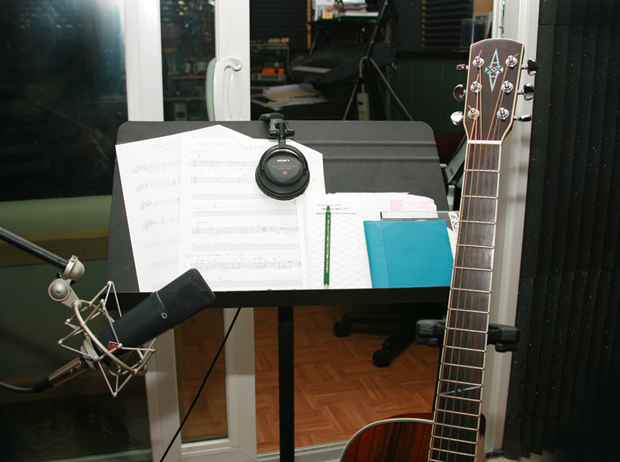Session Guitar: How to Build a Solid Client Base
All the latest guitar news, interviews, lessons, reviews, deals and more, direct to your inbox!
You are now subscribed
Your newsletter sign-up was successful

Some believe the day of the studio musician is over. Not so, by any means. We’re just hiding in the comfort of our own home studios. These days, we are most likely our own contractors, arrangers, engineers, producers and -- oh yeah -- musicians.
We’ve all read stories about the glory days of studio kingpins. Three or more sessions a day for very famous artists. A movie score here or there. No time off for years on end. The dream job. High visibility. However, those musicians must have actually accounted for less than 1 percent of the actual working studio guitarists.
- There are also people like myself. A solid client base, growing all the time. Location is not that important.
- What keeps me busy? And more importantly, what can keep you busy? Where does the work come from?
Here’s a partial list:
Online jingles, background music for reality shows, artist recordings (Indie and label), Broadway demos, temp music for movies, Independent movies, art shows and songwriter demos.
I’m usually looking at a list of 20 jobs at a time. How did I ever get this busy? I worked for free. Money was not an issue. All I wanted was to prove myself and learn as musch as I could along the way.
Remember this: Music is not a job. It’s a calling. Good times, bad times. As long as I get to play.
Now, where did I meet my clients and build a list over the years? Many were friends starting out, just like me. Some were college students doing a first movie for a school project. I played in bands. People saw me and asked if I would play on their recordings. I played in church. You would not believe the amount of work I got from playing a TV Mass in New York City with other studio guys/gals.
All the latest guitar news, interviews, lessons, reviews, deals and more, direct to your inbox!
Others heard and asked for my number. Word of mouth is still the best way. And these days, it can travel pretty fast. Prove yourself first.
I played anywhere and everywhere. I learned. I got the experience. I could sight read. I was flexible. I was polite and professional. Have a good attitude. Be nice.
Competitiveness is also a good attribute. If someone asked me to play, I wanted to play it better than the next guy. And if I could suggest some changes that may help, I did … at the appropriate time. When is the appropriate time? When they have already heard what you can do for them and they are smiling. Do not go in bad mouthing someone else’s work. You do not know how long or how much an investment has been made. Especially with an artist. They are vulnerable. Earn their trust.
Remember: Music is not a job. It’s a calling.
Till next week.
Ron Zabrocki on Ron Zabrocki:I’m a session guitarist from New York, now living in Connecticut. I started playing at age 6, sight reading right off the bat. That’s how I was taught, so I just believed everyone started that way! I could pretty much sight read anything within a few years, and that aided me in becoming a session guy later in life. I took lessons from anyone I could and was fortunate enough to have some wonderful instructors, including John Scofield, Joe Pass and Alan DeMausse. I’ve played many jingle sessions, and even now I not only play them but have written a few. I’ve “ghosted” for a few people that shall remain nameless, but they get the credit and I got the money! I’ve played sessions in every style, from pop to jazz.
